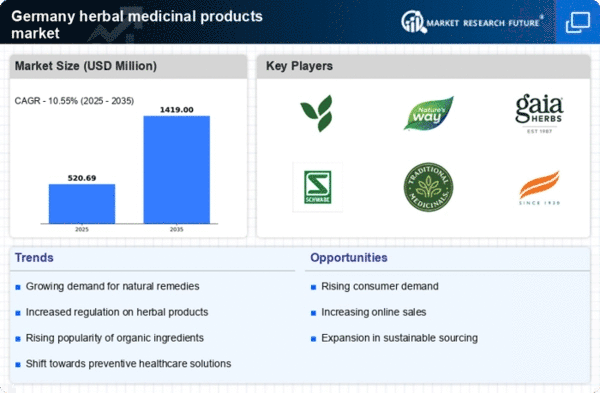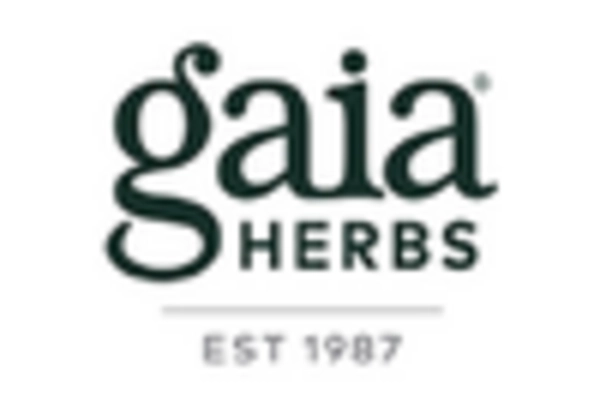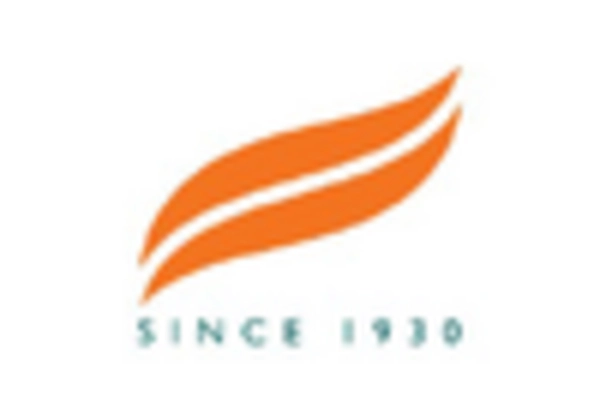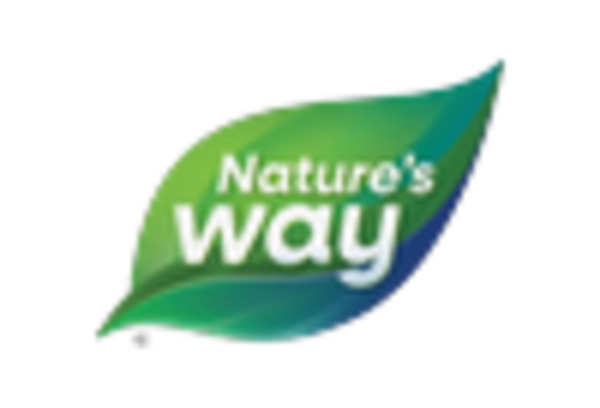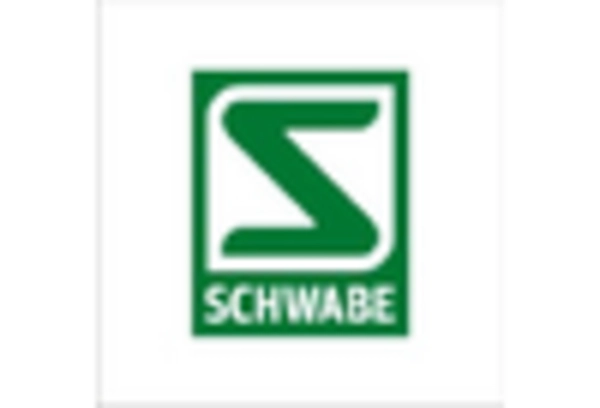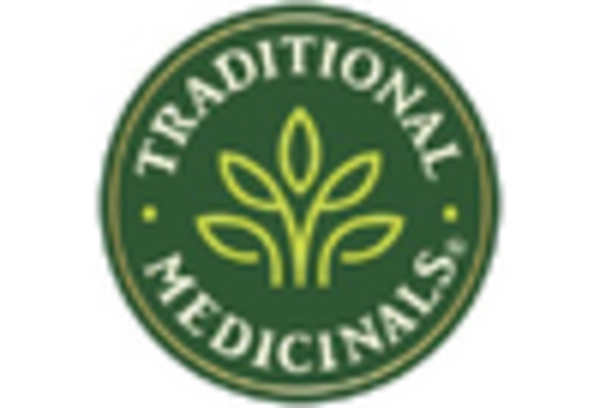Growing Consumer Awareness
The herbal medicinal products market is experiencing a notable surge in consumer awareness regarding the benefits of natural remedies. This heightened awareness is largely driven by an increasing number of health-conscious individuals seeking alternatives to synthetic pharmaceuticals. According to recent data, approximately 60% of German consumers express a preference for herbal products over conventional medications. This trend indicates a shift towards holistic health approaches, which is likely to bolster the market. Furthermore, educational campaigns and information dissemination about the efficacy of herbal remedies contribute to this growing awareness, thereby expanding the consumer base for the herbal medicinal-products market.
Shift Towards Preventive Healthcare
The herbal medicinal products market is benefiting from a significant shift towards preventive healthcare. As more individuals prioritize wellness and disease prevention, the demand for herbal remedies that promote overall health is likely to increase. This trend is reflected in the rising sales of herbal supplements, which accounted for approximately €1.5 billion in 2024. Consumers are increasingly seeking products that not only address existing health issues but also enhance their immune systems and overall vitality. This proactive approach to health management is expected to drive the growth of the herbal medicinal-products market, as consumers turn to natural solutions for long-term wellness.
Regulatory Support for Herbal Products
In Germany, the regulatory framework surrounding herbal medicinal-products is becoming increasingly supportive, which is likely to enhance market growth. The Federal Institute for Drugs and Medical Devices (BfArM) has established guidelines that facilitate the approval and marketing of herbal products. This regulatory clarity not only instills confidence among manufacturers but also assures consumers of product safety and efficacy. As a result, the herbal medicinal-products market is projected to grow at a CAGR of 7% over the next five years, driven by the influx of new products entering the market under these favorable regulations. This supportive environment may encourage innovation and investment in the sector.
Rising Interest in Personalized Medicine
The herbal medicinal-products market in Germany is increasingly influenced by the rising interest in personalized medicine. Consumers are seeking tailored health solutions that cater to their unique needs and preferences. This trend is prompting manufacturers to develop customized herbal formulations that address specific health concerns, such as stress relief or digestive health. The market for personalized herbal products is projected to grow significantly, as approximately 40% of consumers express a desire for products that align with their individual health goals. This shift towards personalization is likely to reshape the herbal medicinal-products market, fostering innovation and enhancing consumer engagement.
Integration of Technology in Herbal Products
The integration of technology within the herbal medicinal-products market is emerging as a key driver of innovation and efficiency. Advances in extraction techniques and formulation processes are enabling manufacturers to enhance the potency and bioavailability of herbal ingredients. Additionally, the use of digital platforms for marketing and distribution is expanding the reach of herbal products to a broader audience. This technological evolution is likely to attract younger consumers who are more inclined to explore herbal options. As a result, the market is expected to witness a transformation, with an estimated growth rate of 6% annually, as companies leverage technology to meet evolving consumer demands.


